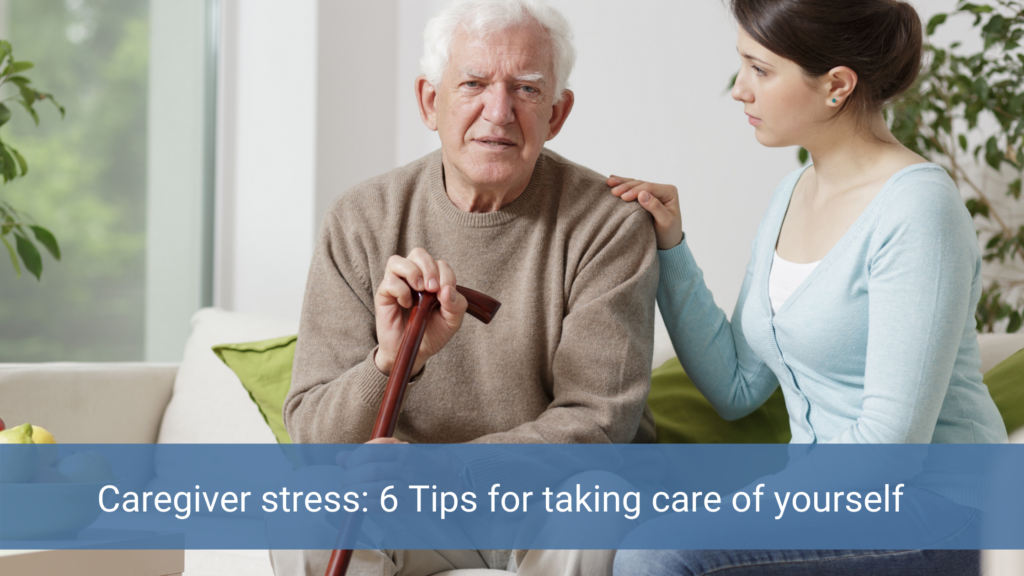Caring for a loved one can be rewarding, but it is not easy. The shift in family roles coupled with the extra demands on your time and energy can be very stressful, making stress relief for caregivers essential. When stress becomes out of control, it not only jeopardizes your health and well-being but also impairs your capacity to be present for your loved one. So taking care of yourself is in both of your best interests. Here are six stress-relieving strategies for caregivers.
Create a Care Routine

Including self-care time in your daily schedule establishes a baseline for healthy emotional management. Daily self-care can be as simple as having a midday coffee break, reading quietly for 10 minutes, taking a quick stroll around the block, or gaining some time to reflect during a 5-minute drive while running an errand. Consistency is key in self-care, and keeping time precious will make the difference between being tired or energetic in the role of caregiver.
Take a Deep Breathe
Slow, deep breathing provides revitalizing oxygen – something that is more difficult to take in when we are harried and tense. To alleviate stress and feel rejuvenated, try taking larger, slower breaths. As you breathe, you’ll feel your entire body slowly relax.
Try this paced-breathing exercise: inhale via your nose for five counts, hold for seven counts, and then slowly exhale through a slightly opened mouth for eight counts. (You should hear a tiny whooshing sound as you exhale.) You can do this while seated or standing, and with your eyes open or closed.
Get Support
There are several formal support options accessible to people who provide in-home care for older loved ones. Connecting with those who share your challenges and stresses, whether in person or virtually, through a weekly, bi-weekly, or monthly meeting, can be a valuable tool in relieving tension, obtaining validation, or sharing your experiences. Look for online forums or see if your community has caregiver support groups at the local senior activities center. You’ll avoid resentment and find it easier to stay focused, cheerful, and helpful to your loved one if you have a safe place to share your caregiving difficulties and challenges.
Be Positive
Focus on the bright side of things. Focusing on what the individual can do rather than what they cannot do can make things easier. Remind yourself that there can still be enjoyable and rewarding times.
Talk to a Therapist
With so many complications and duties to juggle, it can be difficult to keep your mind focused and clear. Meeting with a trained professional on a regular basis can provide a practical and safe space for processing your feelings, learning how to set boundaries, and enhancing communication with your aging loved one and other family members. Building rapport with an impartial professional can help to reduce tensions, misunderstandings, and emotional overload.
Delegate when Possible
Nobody said you had to do everything. Caring for a loved one is emotionally, physically, and financially taxing, therefore it is important to look into options that can relieve at least some of the burden. Taking a much-needed break from caring tasks might also help to revitalize your role. With endless demands from your loved one, it might be difficult to find time to completely detach for a brief period of time in order to return refreshed and recharged. Making temporary caregiver arrangements may feel far from ideal at the time, but as previously discussed, prioritizing pockets of self-care can only strengthen your commitment to your loved one and allow you to continue caring without burnout.
Feel free to browse our website for other caregiver resources and to learn more about issues such as skilled nursing, caregiver respite, personal care, senior companionship, and veteran resources.
Thrive USA Home Care is here for you and glad to help your family. Contact us today to learn more about our compassionate and experienced personal caregivers, licensed nurses, and home health aides who assist families just like yours. If you have any questions, please contact us at (301) 882-4717.




